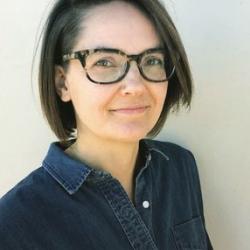Biography
I am a sociocultural anthropologist who focuses on the anthropology of science & technology with an emphasis on reproduction, gender and the environment. My book manuscript in progress, Infertile Futures: Epigenetic Environments in a Toxic China, is an ethnographic study of epigenetic research on male infertility. In the book I explore how multiple environments of toxic exposure are brought into being at various scales through the scientific practices of reproductive toxicologists. The project explores the connections epigenetic toxicological research makes between economic, industrial and human development, examining the role of toxins in the imagination and materialization of scientific and reproductive futures.
I have two additional related projects. The first is a collaborative research effort around the theme Reproducing the Environment, co-organized with Katharine Dow from University of Cambridge. We are exploring how reproductive technologies (broadly defined) are used to mitigate environmental problems, as well as questions about how and why environmental issues are often framed through questions of reproduction and future generations. Following from a workshop in June 2016 at University of Cambridge, sponsored by the Reproductive Sociology Research Group and the Centre for Research on the Arts, Social Sciences and Humanities (CRASSH), we will be producing an article and podcast on this theme.
The second research project continues at the intersection of reproductive and environmental health, focusing on the use of reproductive technologies by coral conservation programs. Coral gametes, like the eggs and sperm of other endangered species, are being frozen in order to preserve the possibility of future resurrection. A study of these practices will address the extent to which problems of the environment and reproduction often transcend formalized political, national and gender boundaries. This is especially true of coral, whose sex exceeds male/female categories and whose territory are dispersed throughout disputed waters such as the South China Sea. This project thinks through how "cyroconservation" falls into a long line of reprotech projects that claim to offer bio-technological solutions to complex social and environmental problems. It also expands on questions of how the intentional intertwining of biology and technology has become vital to human and non-human fertility conservation projects. As a part of the initial stages of this research I presented on an Executive Session at the 2017 AAA Meeting in Washington DC called: How Anthropology Matters in the Anthropocene: Understanding the Cultures and Politics of Climate Change Denial, during which I presented a paper entitled “Banking on Denial,” based on research in Tucson, Arizona, where I currently live.
Publications
2018 Gendered Bioeconomies. In Handbook of Genomics, Health and Society published by Routledge in April 2018, available online: https://www.routledge.com/Routledge-Handbook-of-Genomics-Health-and-Society-2nd-Edition/Gibbon-Prainsack-Hilgartner-Lamoreaux/p/book/9781315451695
2016 "What if the Environment is a Person? Lineages of Epigenetics in a Toxic China," Cultural Anthropology 31(2): 188-214, https://culanth.org/articles/806-what-if-the-environment-is-a-person-lineages-of

